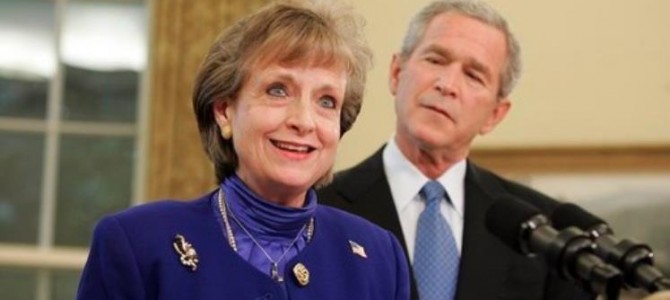Mike Pence spoke at AEI yesterday in defense of his Medicaid expansion in Indiana. His position has been roundly denounced by most conservative and libertarian policy analysts – for a rare defense, read Grace-Marie Turner here, but even her praise is qualified the deeper you go. Most of the critiques of Pence have focused on the politics of the issue assuming the waiver moves forward, but after seeing his presentation yesterday and talking to him at a session following the event, I have my doubts that this waiver will even go through. The request comes following a year of negotiation with the administration to try to save the Healthy Indiana Plan begun under Mitch Daniels, a plan which had its problems, but at least it was on the small side. But there are some key defects to this new proposal, particularly on the “HIP Basic” side. I challenged Pence on the enforceability of co-payments from people below 100% of FPL, and whether he could think of any precedent which would suggest CMS would believe those are enforceable. He couldn’t supply any, nor could either of his staffers.
If CMS rejects his plan, it might actually be better for Pence’s political future as opposed to owning the ramifications of this approach two years from now, when even Scott Walker can say that he actually cut Medicaid rolls and rejected the Obamacare expansion. Pence has a couple of dangerous verbal tics of talking about the expansion as “not a permanent entitlement” and “for working Indiana families” – the first is something that makes Republican primary voters snort with derision, and the second simply isn’t true: there is no work requirement in the waiver, the expansion is overwhelmingly going to childless able-bodied people, and if someone were to work anywhere close to full-time for minimum wage in Indiana, they wouldn’t qualify for it.
Up close, Pence’s mannerisms are remarkably similar to a Midwestern George W. Bush, and I feel like his actions here remind me of a key problem with the Bush presidency, which could prove to be troublesome for Pence should he try for the White House in 2016. Pence’s attitude was one of relying on past defenses of conservative policy to justify his current stance: I asked Pence whether he really thought it was a wise policy, a conservative policy, to expand a welfare entitlement to subsidize able-bodied childless adults by taking money from hardworking taxpayers in other states – he said of course it is, or he wouldn’t have proposed it. So there’s that.
Of course, “I am a conservative, therefore all my policies are conservative” is a dangerous path to go down. It’s one that proved problematic for both W. and the conservative movement during his tenure, which went along with No Child Left Behind, Medicare Part D, and a host of other questionable policy steps without breaking with the White House – an acceptance of Republican policy as conservative policy which was only reinforced by the wars in Iraq and Afghanistan. It was only after clashes over immigration and the appointment of Harriet Miers that the conservative movement woke up to the fact that the White House hadn’t been particularly conservative, and had actually used conservative rhetoric to justify a number of very unconservative ideas.
For the right, the presumption with a Chris Christie presidency – or even a Mitt Romney presidency – would’ve been one of serious skepticism, unwilling to accept any policy at face value without questioning it. But Pence shows what happens when politicians have so much built up goodwill for past defenses of ideological positions that they become used to getting an enormous benefit of the doubt from their constituency. They can get away with much worse policy mistakes because of this – or they used to be able to. If Pence is successful in getting this waiver approved, we’ll have an object lesson in whether that’s still the case in the post-Bush era.









